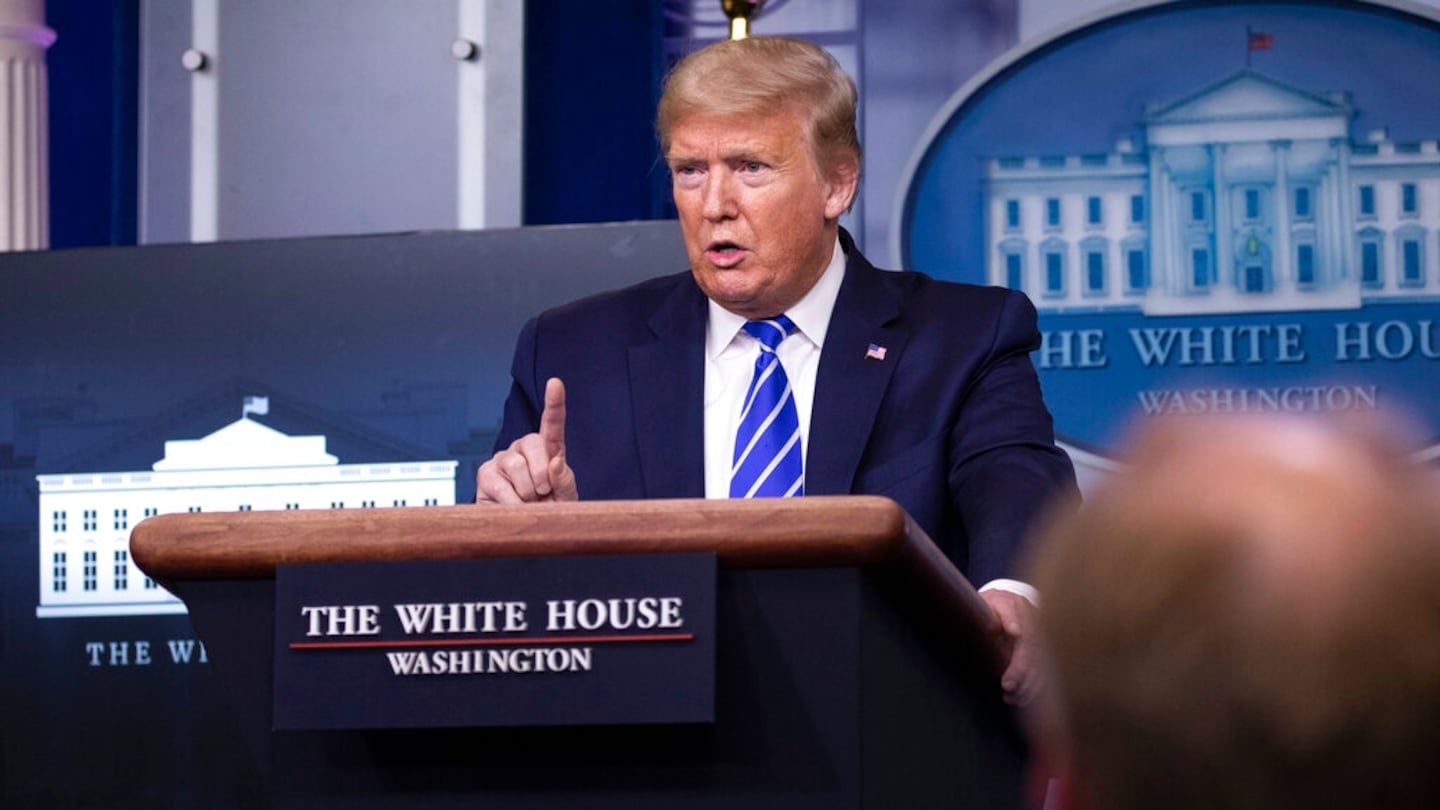During his daily coronavirus update, President Donald Trump suggested that an injection of a disinfectant could be a treatment to battle COVID-19.
>> Coronavirus: Are blood clots killing COVID-19 patients?
Trump said in the briefing, according to The Washington Post, “I see the disinfectant that knocks it out in a minute, one minute. And is there a way we can do something like that by injection inside, or almost a cleaning? Because you see it gets inside the lungs and does a tremendous number on the lungs, so it would be interesting to check that."
He did not say a specific disinfectant, NBC News reported.
Friday morning, Trump said he was being sarcastic, CNN correspondent Jim Acosta reported.
Trump telling reporters he was just being "sarcastic" yesterday when he suggested that people could inject themselves with disinfectant as a treatment for coronavirus. per TV pool reporter @weijia (note: in the video it did not appear he was being sarcastic)
— Jim Acosta (@Acosta) April 24, 2020
>> Coronavirus: What are ‘COVID toes,’ and what does it mean if you have it?
But the makers of Lysol quickly issued a statement to NBC News warning against the recommendation saying, “As a global leader in health and hygiene products, we must be clear that under no circumstance should our disinfectant products be administered into the human body (through injection, ingestion or any other route).”
The statement went on to say, “As with all products, our disinfectant and hygiene products should only be used as intended and in line with usage guidelines. Please read the label and safety information.”
The company continued, saying, it has the “responsibility in providing consumers with access to accurate, up-to-date information as advised by leading public health experts.”
>> Coronavirus: How it could attack brains of some patients
Medical experts are also speaking out about the dangerous suggestion.
On “Good Morning Britain” Dr. Hilary Jones, who is also one of the show’s anchors, said, “I’ve heard some crazy things in my life, but this is probably one of the craziest.” Jones added that the idea was “really worrying," according to the Post.
Jones also reminded viewers that the virus lives inside the cells, not on the surface.
Tell me straight Doc. Do I need an injection of Dettol or not?@DrHilaryJones not impressed by @realDonaldTrump’s ‘quack cures’ for #coronavirus @GMB pic.twitter.com/Mc2nNzZQIN
— Richard Gaisford (@richardgaisford) April 24, 2020
In addition to the disinfectant musings, Trump also said that sunlight and humidity may help battle coronavirus.
Trump said during Thursday’s briefing that patients could be treated with “ultraviolet or just a very powerful light" to kill the virus, NBC News reported.
>> Coronavirus: How COVID-19 progresses; a day-by-day breakdown of symptoms
“I’m here to present ideas, because we want ideas to get rid of this thing. And if heat is good, and if sunlight is good, that’s a great thing as far as I’m concerned,” Trump said, according to The Associated Press.
But earlier this month, advisors told the administration that there was no good evidence that sun and humidity that comes with summer will actually get rid of the virus without using the current public health measures, the AP reported.
>> When will your state reach coronavirus peak? Find out here
Researchers wrote in early April, “Given that countries currently in ‘summer’ climates, such as Australia and Iran, are experiencing rapid virus spread, a decrease in cases with increases in humidity and temperature elsewhere should not be assumed." The answer was given in response to questions from the White House Office of Science and Technology, the AP reported.
The White House Press Secretary released a statement to reporters Friday morning concerning Trump’s comments:
“President Trump has repeatedly said that Americans should consult with medical doctors regarding coronavirus treatment, a point that he emphasized again during yesterday’s briefing. Leave it to the media to irresponsibly take President Trump out of context and run with negative headlines.”
— Kayleigh McEnany, White House Press Secretary





